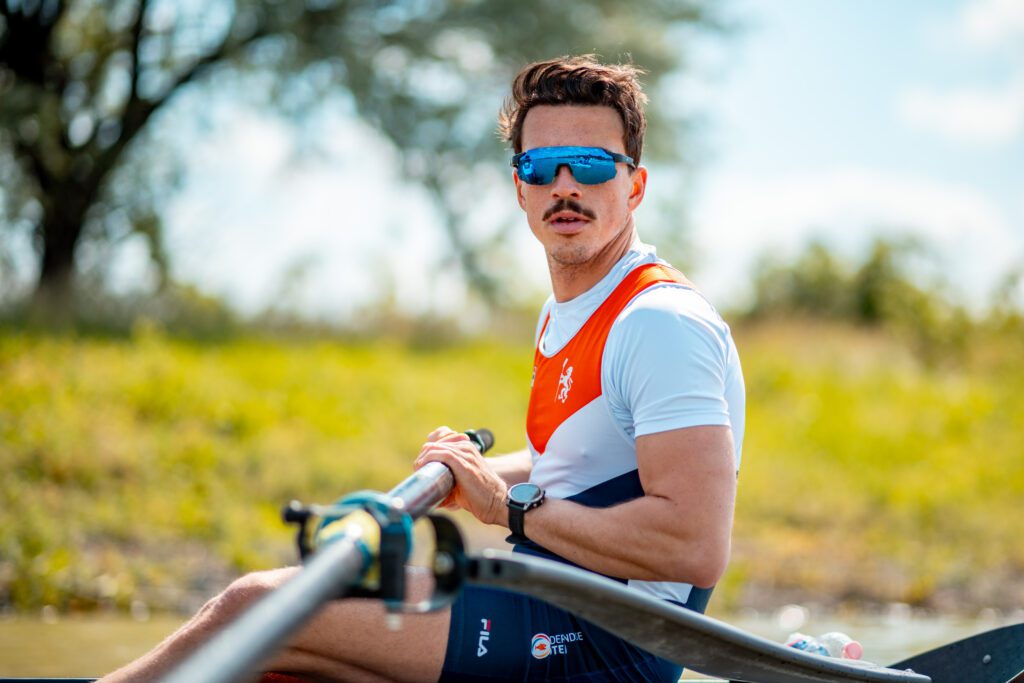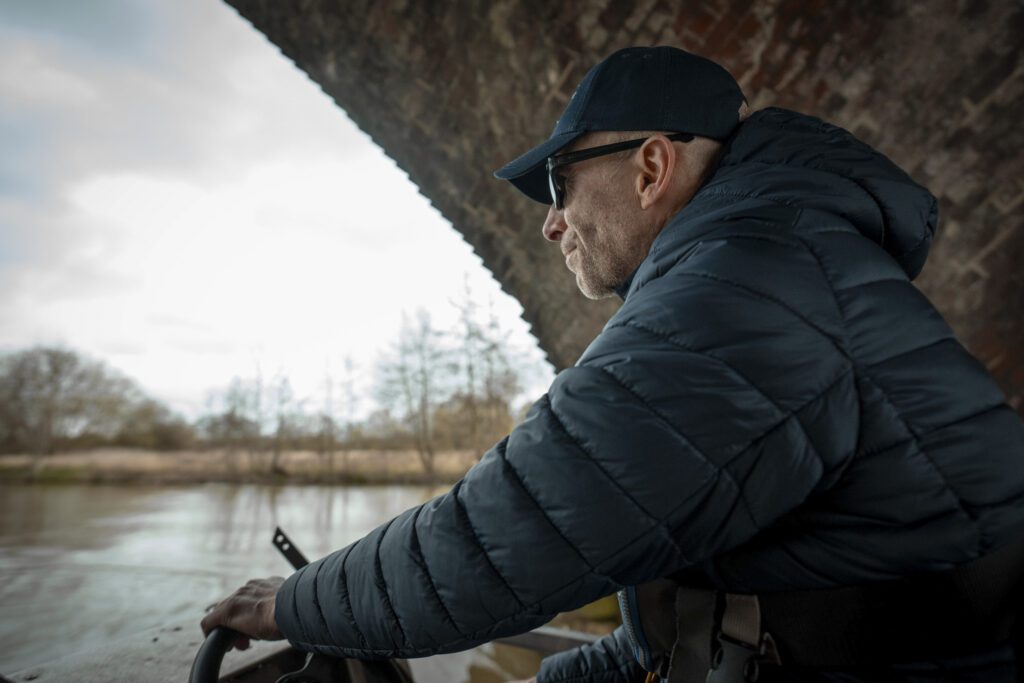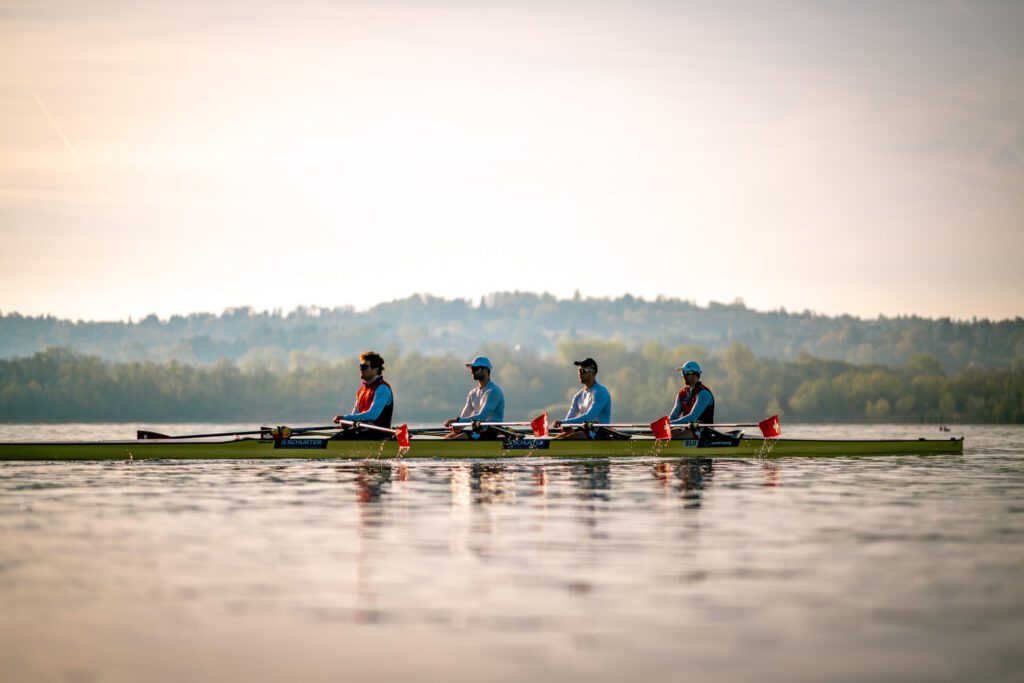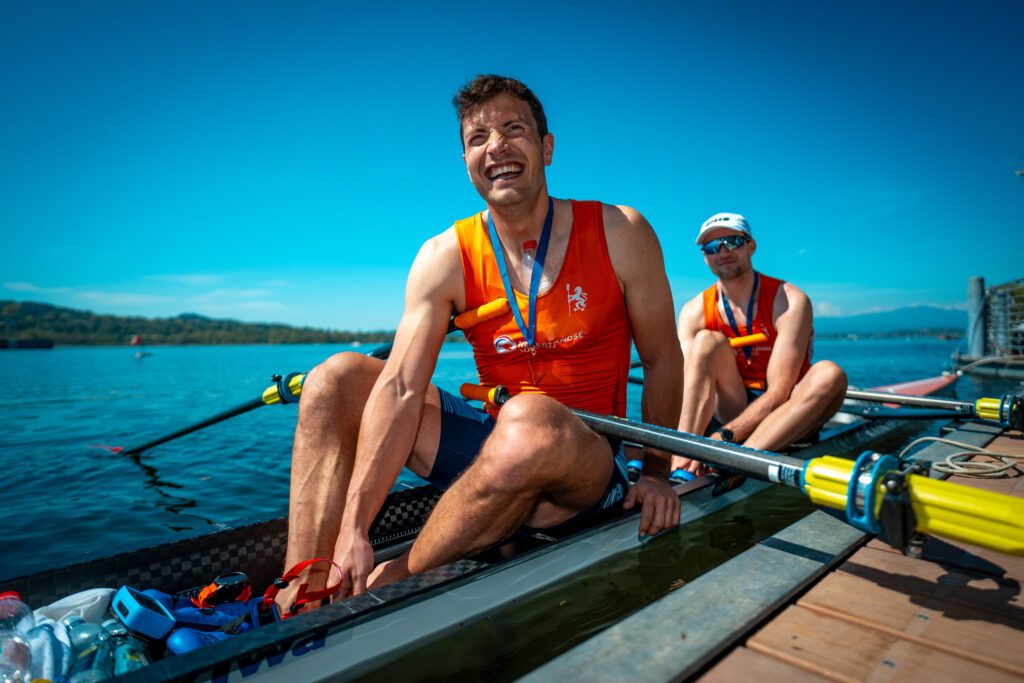Tom Ransley, Olympic gold medallist and current member of the British rowing team reports from their latest training camp, high in the Austrian Alps.
A man quacks at me. Behind the stainless steel trolley stacked with dirty plates is a middle-aged man in a scruffy apron. He has a pale face and a greasy complexion. Dark beady eyes peer out from a weathered face. They are narrow-set and skittish; darting to and fro as he scans the room. His saccadic eyes create the illusion that some inner tormentor has them hooked up to a line and rod, continually casting the ophthalmic bait above a sea of salt and “ pepper stubble. He frowns at me. A deeply furrowed forehead knits together like the glacial scars in the mountain-side behind him. He gives another shrill quack, before charging back towards the kitchen. I look down at my unappetising lunch. I’m struggling to eat and I’ve only just arrived. The team are yet to complete the first task on the training program. After lunch we must unload a van full of ergs and then head to the basement to find the weights.
The training program is a document of order; a meticulous plan. It is a series of precise instructions, detailing; modality, distance, speed and location. All itemised in neat columns and rows. The chaos of life never breaches this sacrosanct world of the ‘training program’. The plan resides within virtual boundaries isolated in an excel spreadsheet. It is the job of the team to give life to the training program, to; live it, do it, and make it real. The training program derives from science and method. It is the product of decades’ worth of; observations, calculations, and analysis. The program builds towards a single point in the future – the Olympic Games. Years of preparation prescribed, all leading to a single race. The training program is obsessed by Olympic competition.
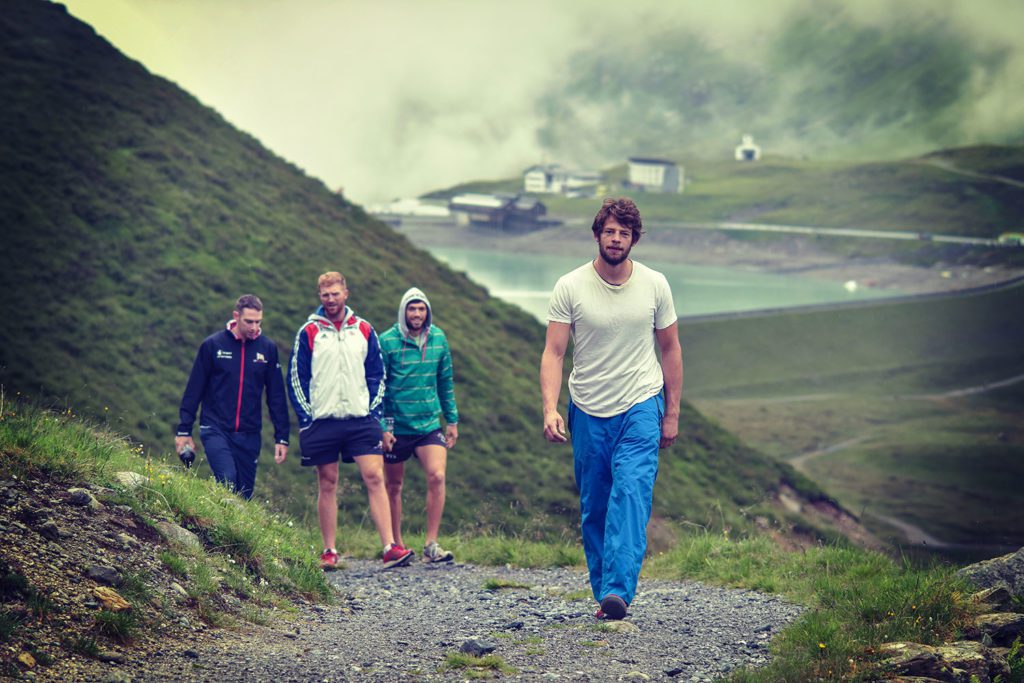
Photo Tom Ransley during a recent GB training camp in the Austrian Alps
Credit Pete Reed
However, unlike the program, Olympic competition is a world of instinct, aggression and uncertainty. Training camp is where these two worlds begin to merge. Disparate ferocious power is ordered into smooth consistent harmony. The program seeks better boat speed: camp is where we find it.
One of our longstanding training camp venues is high up in the Austrian Alps, not far from where Ernest Hemingway wrote The Sun Also Rises. A place where cow bells are the first sound in the morning and the last sound at night. There is an inherent hardy nature. The environment imbues a toughness that suits our discipline. This rustic location is everything Caversham (GB Rowing headquarters) is not.
In many ways it defies modern elite sports centres that adhere to every detail of sports science. It isn’t clean or clinical, it does not have expensive shiny equipment. Our bench pull is a rough plank of wood lashed down with boat ties to two metal stands. The weights are dirty and rusted and ruin lifting vests; anyone snaking the reps are called out by the lack of grime upon their person. We drag all of this equipment out of a dank dark basement, where it has rotted for another year since the last time we were there. The mats are barely intact and provide little to no cushioning, but they are a tangible reminder of those that have gone before. If nothing else, they strengthen the immune system as you collapse face down onto decades’ worth of previous exertions. They are objects of history, a collective physical incarnation of the past. The mountain location provides a raw and savage beauty in which to endure a brutal fortnight.
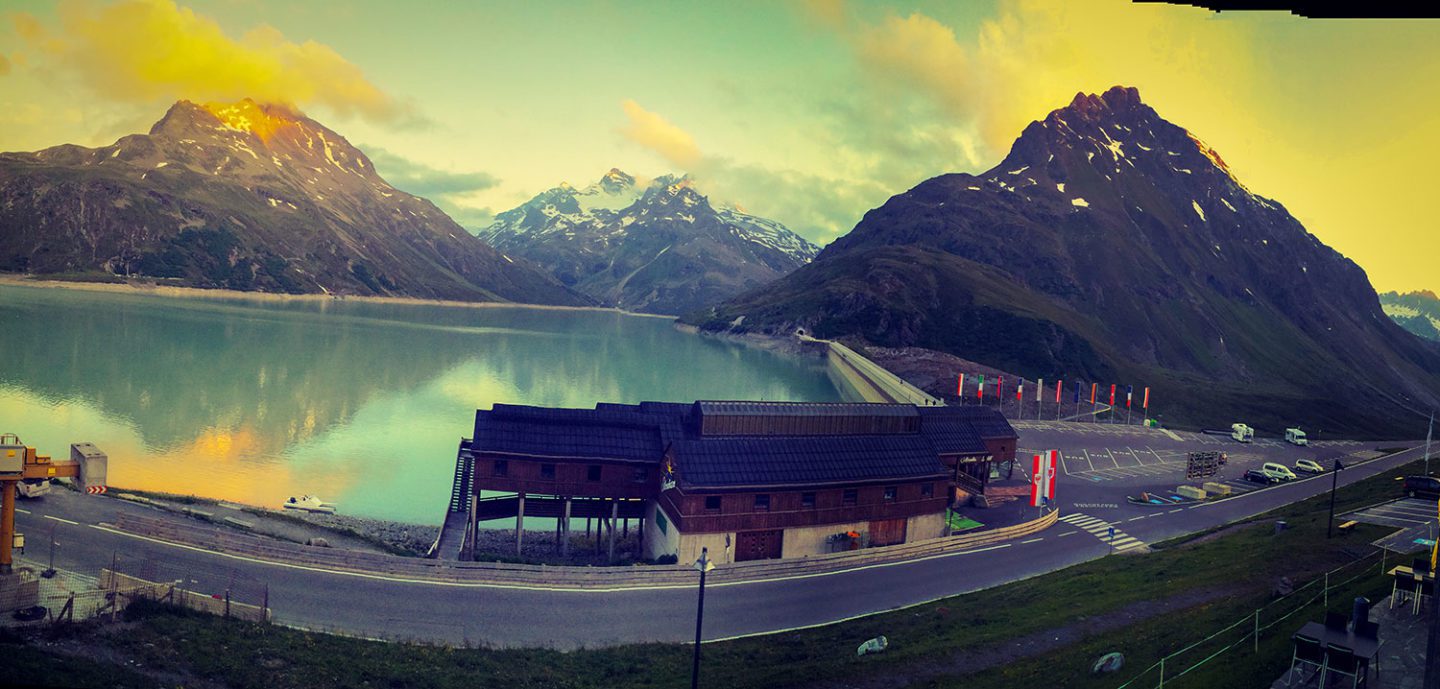
Photo A view over the alpine lake, 2000m above sea level.
Credit Pete Reed
Regardless of the science it feels horrible. It is a tough place to train but it can be rewarding. The isolation yields increased concentration. Sweeping the boat along alpine waters, 2000m above sea level, surrounded by snowy vistas is both peaceful and profound. The beauty is like an antidote to the hypoxic suffering. Of course not every session is so serene nor feels so glorious. We are forever at the mercy of the changeable mountain weather. Within a single session the conditions can flip through all four seasons. It is when the thunder and lightening rages that we submit to the mountain and get off its lake, but only to the sore comfort of an ergo.
Mountains have always presented humans with an alluring challenge. A place in which to conquer oneself. It can be an unforgiving environment. The altitude provides an additional level of stress on the body. There is a common misconception that at higher altitudes there is less oxygen in the air. Training up the mountain puts the team at a significantly higher altitude than usual. However, despite the jump in altitude the composition of the air remains the same, oxygen still makes up around twenty-one per cent. It is the density that changes. Air molecules are more dispersed at higher altitudes due to decreased atmospheric pressure. A breath breathed at altitude will provide less oxygen to the body compared with a breath back at sea level, owing to the difference in partial pressure.
“It was the end we worked for all winter, and all the winter built to make it possible.”
Ernest Hemingway
During these camps I spend a lot of time staring at food. The altitude seems to ward off any sort of appetite. Eating becomes a war of attrition. Losing my appetite is an unfortunate side effect as a lot of calories are needed to replace those expended rowing. Thursday lunchtimes are the worst: the program requires an all-out effort on the rowing machine. It will not be the only session of the day but certainly the toughest. Afterwards I’ll peel myself off the garage floor, where we erg, and head to the cafe. Despite the friendly, and occasionally absurd staff, I rarely force all the food down. Instead I pick and prod at it, until it becomes a formless mush. I stare at the mush as if hoping to achieve some nutritional sustenance via the power of sight. I have many memories of immoveable feasts. We aim to consume around six thousand calories a day but this is not always possible. Weight loss is common amongst the squad over this camp. We leave nearly as lean as Hemingway’s prose.
The final session of camp requires the team to load the ergs into the van and dump a tonne of rusty weights back into the basement. We form neat lines and have the job done quicker than before. Perhaps the meticulous and ordered training program is working, or maybe the boys just want shot of the place. By the time we board the bus home I don’t even notice the cow bells anymore.
This article first appeared in

